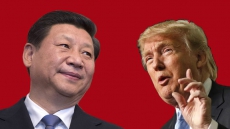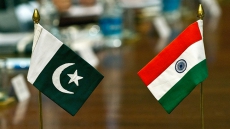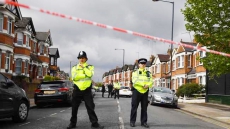Sri Lanka on Monday declared a nationwide curfew as anti-Muslim riots spread to parts of the island nation, just three weeks after multiple suicide bombings claimed by the Islamic State killed over 250 people and injured hundreds.
The curfew will remain in force till 4 a.m. Tuesday, said police spokesman S.P. Ruwan Gunasekara.
Prime Minister Ranil Wickremesinghe urged citizens to remain calm and not be swayed by rumours after the violence, majorly affecting Kurunegala district where Muslims were targeted, Colombo Gazette reported.
A Facebook post has sparked anti-Muslim riots in Sri Lanka, with Christian and Muslim community leaders calling for calm. pic.twitter.com/joMug4NXyG
— Al Jazeera English (@AJEnglish) May 13, 2019
Kurunegala town is located about 100 km from Colombo and Muslims constitute the second largest ethnic group there after the Sinhalese, who are mainly Buddhists.
The Prime Minister said: "Security forces are working tirelessly to apprehend terrorists and ensure the security of the country, but each time there is civil unrest, we increase their burden and hamper ongoing investigations."
"A Muslim mas was slashed to death in Sri Lanka Monday. The 45-year-old man died shortly after admission to a hospital in Puttalam district during anti-Muslim rioting which began Sunday in the area." https://t.co/lA2wVYUOse
— Amarnath Amarasingam (@AmarAmarasingam) May 13, 2019
His comments came after several Muslim-owned shops and other property were damaged or destroyed by mobs in Kurunegala district on Monday.
Authorities had earlier in the day reimposed curfew in several towns of the still shaken Buddhist-majority country and temporarily blocked social media websites after a Facebook post sparked the anti-Muslim riots.
Sri Lanka has been on the edge since the April 21 horror when suicide bombers exploded themselves in three churches and three luxury hotels besides two other places. Most targets were in Colombo.
The killings were the worst to hit Sri Lanka since the end of the civil war a decade earlier.
Anti Muslim riots igniting across Sri Lanka with several mosques being destroyed https://t.co/OvZSpqxYwe
— Abhijit Iyer-Mitra (@Iyervval) May 13, 2019
The unrest was triggered on Sunday after a group of people stormed into Chilaw town following the Facebook post by a Muslim shopkeeper about "an attack plan".
Reports said that several people threw stones at mosques and attacked Muslim-owned shops. A man, presumably Muslim, was beaten up.
Amid the unrest, the Army fired shots in the air to disperse the mobs but the unrest spread to other towns, the Daily Mirror reported.
The same day, a curfew was imposed in Chilaw and Kuliyapitiya, Bingiriya, Hettipola and Dummalasuriya areas and the social media ban was imposed to prevent circulation of fake news and incitement to violence.
The curfew was then extended to Rasnayakapura and Kobeigane areas in Kurunegala district and authorities warned that "tough action will be taken against anyone disrupting the peace".
The latest unrest began as Catholic churches resumed Sunday mass for the first time since the Easter bombings.
According to the the All Ceylon Jamiyyathul Ulama (ACJU) -- the main body of Islamic clerics -- there has been increased suspicion of Muslims after the attacks blamed on local Islamic group National Thowheed Jamath, which is believed to have links with the Islamic State (IS) that claimed the carnage.
Sri Lankan authorities say most of the 150 people suspected to have been linked to the last month's attacks have died or been arrested but many still fear that the government has not caught all potential militants.
The killings and lingering tensions have affected tourism, a major foreign exchange earner for Sri Lanka.


